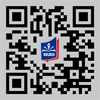Developing the Speaking Skill in Cuban Primary Schools through Language Games (Original)
Palabras clave:
language games; speaking skill; primary school; dynamic; descriptorsResumen
The following article is part of a term paper aimed at developing the speaking skill through the application of language games due to the necessity of developing this skill in primary school students. It addresses its attention to a system of language games that contributes to the development of the above-mentioned skill by practicing the linguistic content after the system of knowledge of each unit of the syllabus has been introduced in the English lessons.
The research work is important because it helps to develop the teaching learning process of oral communication in English among these students. The system of language games, linguistic and communicative, is a great contribution to the primary school bibliographical system. It facilitates developing the speaking skill in a practical and dynamic way, favouring the process of oral communication in the foreign language. A very important value is that students are assessed using the levels of the Common European Framework of References to the Languages.
Descargas
Referencias
Byrne, D. (1989). Teaching Oral English. La Habana: Revolucionaria.
Canale, M. and Swain, M. (1980). Theoretical Bases of Communicative Approaches to Second Language Teaching and Testing. Applied linguistics, Vol.1 (1), Spring.
Elliot, J. (1999). El cambio educativo desde la investigación-acción. Madrid: Ediciones Morata.
Ersoz, A. (2000). Six games for EFL/ESL classroom. Available in http://iteslj.org/Lessons/Ersoz-Games.html.
Giovannini, A. (1996). Profesor en Acción. Madrid: Edelsa Grupo Didascalia. S.A.
Hadfield, J. (1999). Intermediate vocabulary games. Harlow, Essex: Longman.
Jacobs, G. M., & Kline Liu, K. (1996). Integrating language functions and collaborative skills in the second language classroom. TESL Reporter, 29, 21-33.
Lee, S. K. (1995). Creative games for the language class. Available in http://exchanges.state.gov/forum/vols/vol33/no1/P35.htm.
Thiagarajan, S. (1999). Teamwork and teamplay: Games and activities for building and training teams. San Francisco: Jossey-Bass.
Uberman, A. (1998). The use of games for vocabulary presentation and revision. Available in http://exchanges.state.gov/forum/vols/vol36/no1/p20.htm.
Vigotsky, L. S. (1968). Pensamiento y lenguaje. La Habana: Edición Revolucionaria.
Wright, A. and Buckby, M. (2002). Games for Language Learning. Cambridge: Cambridge University Press.









